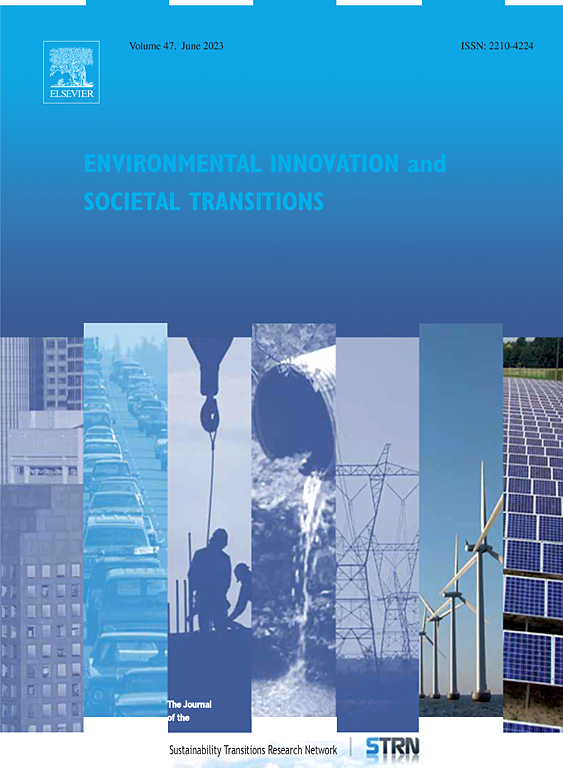Assessing Lean Startup for sustainable business models: Application of the SAFE framework
IF 5.7
2区 经济学
Q1 ENVIRONMENTAL SCIENCES
Environmental Innovation and Societal Transitions
Pub Date : 2025-07-21
DOI:10.1016/j.eist.2025.101029
引用次数: 0
Abstract
This paper evaluates the Lean Startup (LS) methodology as a business modelling practice for sustainable innovation, focusing on its ability to support business models that integrate economic, social, and environmental value. To guide this assessment, we introduce the Sustainable innovation practices Assessment FramEwork (SAFE), a conceptual, multi-layered structure composed of a meta-model, a framework, and a two-step diagnostic tool. SAFE enables a structured evaluation of how LS applies sustainability logic throughout the business modelling process. The analysis shows that LS can facilitate business models that are adaptive and responsive to sustainability-related challenges and stakeholder needs. However, it also reveals tensions between LS’s emphasis on rapid market validation and the long-term, systemic orientation required for sustainable innovation. By highlighting strengths and limitations, SAFE identifies opportunities to adapt LS for better alignment with sustainability imperatives, offering a basis for future research and application across other innovation practices, such as the triple layered business model canvas or TBL accounting.
评估可持续商业模式的精益创业:SAFE框架的应用
本文将精益创业(LS)方法作为可持续创新的商业建模实践进行评估,重点关注其支持整合经济、社会和环境价值的商业模式的能力。为了指导这一评估,我们引入了可持续创新实践评估框架(SAFE),这是一个由元模型、框架和两步诊断工具组成的概念性多层结构。SAFE能够对LS如何在整个业务建模过程中应用可持续性逻辑进行结构化评估。分析表明,LS可以促进适应和响应可持续性相关挑战和利益相关者需求的商业模式。然而,它也揭示了LS强调快速市场验证与可持续创新所需的长期、系统导向之间的紧张关系。通过强调优势和局限性,外管局发现了调整LS以更好地符合可持续发展要求的机会,为未来研究和应用其他创新实践(如三层商业模式画布或TBL会计)提供了基础。
本文章由计算机程序翻译,如有差异,请以英文原文为准。
求助全文
约1分钟内获得全文
求助全文
来源期刊

Environmental Innovation and Societal Transitions
Energy-Renewable Energy, Sustainability and the Environment
CiteScore
13.60
自引率
19.40%
发文量
90
审稿时长
56 days
期刊介绍:
Environmental Innovation and Societal Transitions serves as a platform for reporting studies on innovations and socio-economic transitions aimed at fostering an environmentally sustainable economy, thereby addressing structural resource scarcity and environmental challenges, particularly those associated with fossil energy use and climate change. The journal focuses on various forms of innovation, including technological, organizational, economic, institutional, and political, as well as economy-wide and sectoral changes in areas such as energy, transport, agriculture, and water management. It endeavors to tackle complex questions concerning social, economic, behavioral-psychological, and political barriers and opportunities, along with their intricate interactions. With a multidisciplinary approach and methodological openness, the journal welcomes contributions from a wide array of disciplines within the social, environmental, and innovation sciences.
 求助内容:
求助内容: 应助结果提醒方式:
应助结果提醒方式:


